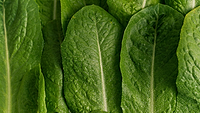The Leafy Greens Marketing Agreement: 5 Years Later

In 2006, a multistate outbreak of Escherichia coli O157:H7 sickened 202 people and resulted in three deaths. The source was found to be spinach from California, and the cause is believed to be contamination from the farm. Understandably, consumer confidence in spinach, and other leafy green vegetables, plummeted. Although the product came from only one company, the entire leafy greens industry was reeling from the impact of this tragic event. As a result, California farmers came together to raise the bar for food safety and formed the California Leafy Green Products Handler Marketing Agreement (LGMA). Through this rigorous program, shippers and farmers are working collaboratively to protect public health by reducing potential sources of contamination in California-grown leafy greens.
What Is the LGMA?
The California LGMA is an unprecedented food safety program that was created to protect public health by establishing a culture of food safety on leafy greens farms.
At its inception, the LGMA was a unique program forging a new path for produce food safety. Creating the program in response to the tragedy of the 2006 spinach outbreak, the California leafy greens industry vowed not to forget the victims. Over the years, the industry has demonstrated a widespread commitment to protecting public health by establishing a culture of food safety throughout their individual organizations and farms. Today, 99% of the leafy greens produced in California come from 115 LGMA members, their growers and harvest crews. Arizona is another substantial leafy greens producer and has established a sister program—combined, approximately 90% of U.S. leafy greens production is grown and harvested in accordance with the LGMA program.
The LGMA, operating with oversight from the California Department of Food and Agriculture, is a mechanism for verifying that growers follow science-based food safety practices for lettuce, spinach and other leafy greens. Each LGMA member is required to be in compliance with all LGMA standards to achieve certification. Food safety audits, conducted by government inspectors, are mandatory for all LGMA member companies. Each member company is audited several times a year. Every leafy greens farm that supplies product to an LGMA member is audited at least once per year. The audits are designed to determine whether a member of the LGMA is in compliance with the food safety practices that cover farming, harvesting and cooling operations.
The LGMA service mark provides assurance for grocery stores, restaurants and other institutions that product bearing the mark has been grown according to the LGMA food safety practices via mandatory government audits. Members are required to take corrective action on any and all findings cited during government audits, and measures must be taken to prevent future infractions for any practice found to be out of compliance. The LGMA provides the public with a list of certified member companies and posts names of any member who is decertified.
Who Uses the LGMA?
Leafy greens growers and shippers, North American produce buyers and U.S. regulators stand to benefit from this rigorous food safety verification system.
LGMA members are companies (also known as handlers) who put California leafy green products into the marketplace. They are required to utilize the program’s food safety practices, which are verified via mandatory audit every 2 months during production. Additionally, one unannounced audit is conducted annually. All members, their growers and harvesters are encouraged to participate in LGMA technical training seminars that are offered throughout the state and target areas of frequent audit citations. Only certified member companies are able to ship California leafy greens into Canada (a requirement of the Canadian Food Inspection Agency).
Produce buyers, grocery stores, restaurants and other institutions help enforce the LGMA program by having policies in place to buy only from certified members of the program. The program focuses on continuous improvement by requiring corrective action on all audit citations, which results in 100% compliance. LGMA members who fail to be in compliance with the program can be decertified—notification of decertification is made public and shared immediately with the produce-buying community.
The Food Safety Modernization Act (FSMA) is a new law that aims to protect the food supply by shifting the focus from responding to contamination to preventing it. The FSMA will directly affect the fresh produce industry when the U.S. Food and Drug Administration (FDA) issues its pending Fresh Produce Safety Rule. This rule will focus on the safe production, harvesting and packing of fresh produce. The LGMA is encouraging FDA to consider adopting California’s comprehensive food safety program as a means of meeting requirements of new FSMA legislation as it is already providing government audit and oversight of food safety for produce items with costs being borne by the industry itself. Doing so would allow the government to save approximately $1.2 million per year in costs to inspect leafy greens in California alone and would provide government inspection for approximately 80% of the leafy greens produced in the United States.
A Model Program
The LGMA food safety program has been successfully implemented since 2007 and provides a system that can be easily adapted for a wide range of farming operations and products. Similar to HACCP, the LGMA program has six principle elements.
1. Assess Risks
Experts have identified specific food safety hazards associated with the production of leafy greens for water, soil amendments, environmental conditions, worker practices and field operations. LGMA members must review their own operations for these potential food safety hazards.
2. Apply Science
The food safety practices used every day by LGMA members and their growers are designed to reduce potential sources of contamination and give specific and science-based guidance for growing and harvesting leafy greens.
3. Document Practices
LGMA members are required to document that all required food safety practices have been implemented. Documentation is audited by government inspectors.
4. Verify Compliance
Compliance with food safety practices is verified through mandatory audits of leafy greens farms by U.S. Department of Agriculture-trained government inspectors. The audit covers farming, harvesting and cooling operations. Members are subject to several mandatory inspections annually, both scheduled and unannounced.
5. Provide Corrective Actions
Corrective action is required on any and all findings cited during government audits. Preventive actions are also required to further protect public health. Completion of corrective and preventive actions is verified upon subsequent reinspection. Each LGMA member is required to be in compliance with all LGMA food safety practices to achieve certification.
6. Promote Transparency
Certification status, including any decertification actions, of LGMA member companies is listed on the LGMA website at all times. In addition, the LGMA website provides access to the food safety practices, the audit checklist and annual reports that provide inspection and citation data.
What’s Happened Over the Past 5 Years?
Since that first year (2007), the LGMA has conducted a total of 2,585 audits and over 200 billion servings of leafy greens have been grown under this system of mandatory government inspection.
That is an average of more than 500 audits annually, with each LGMA member being audited once every 2 months in production and undergoing one unannounced audit annually.
On average, approximately 1,000 audit citations have been issued annually, all of which must be corrected for an LGMA member to be certified. Minor infractions, which do not necessarily increase risk associated with the product, are corrected on-site and account for 31% of all citations. Minor deviations, which are issued when practices on the farm don’t follow LGMA guidelines, but the risk to food safety is not necessarily higher, require that a corrective action plan be submitted in 5 days and account for 64% of all citations. Major deviations account for about 5% of all citations and are subject to reaudit in 3 days. Flagrant violations account for less than 0.2% of all citations and can lead to decertification. Over the life of the program, six companies have been decertified for noncompliance, and two companies that were not yet certified were declared ineligible for certification until the next calendar year.
Over the years, assessment rates have dropped and inspection costs have decreased as the program becomes increasingly efficient. An impressive training program has been added to the LGMA offerings to assist handlers and work crews to ensure everyone knows and understands the importance of food safety on the farm.
The LGMA program has continued to evolve, although its mission remains focused on ensuring safe products and confidence in leafy greens. During a recent strategic planning process, the LGMA board approved a set of priorities that include: attaining global food safety certification; engaging regulators on food safety; increasing industry education and working to establish the LGMA as a leading resource on leafy greens food safety. Yes, the LGMA has come a long way in 5 years. While the program is continually working to improve, the most important outcome of the LGMA is that the industry has not repeated the tragic events of 2006.
For more technical information on the California Leafy Greens Marketing Agreement, visit www.lgma.ca.gov.
 April Ward is communications director of the California Leafy Greens Marketing Agreement.
April Ward is communications director of the California Leafy Greens Marketing Agreement.
Looking for a reprint of this article?
From high-res PDFs to custom plaques, order your copy today!






